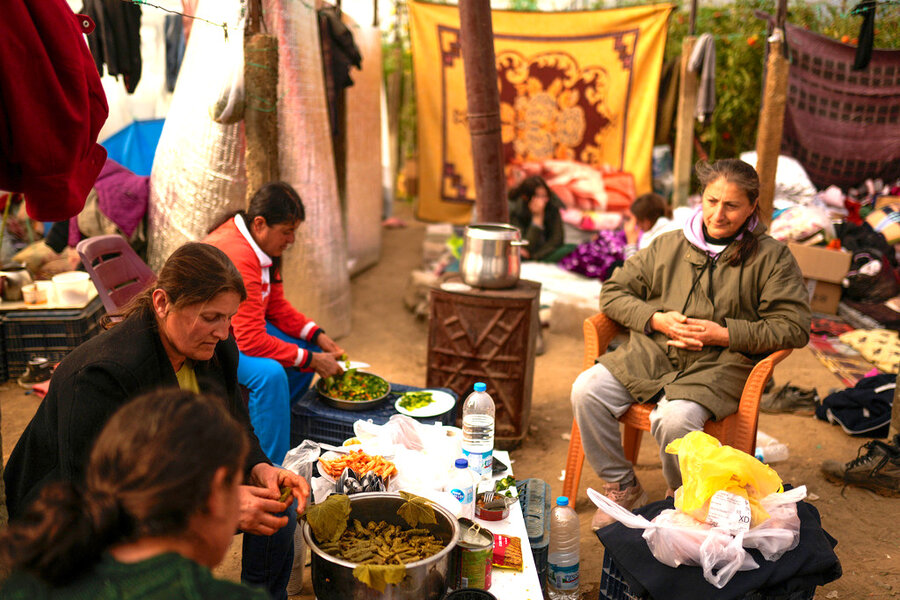After the earthquakes, a tectonic social shift
Loading...
The earthquakes in Turkey this month – the largest to affect the region in 200 years – have shaken the country’s society to rethink old norms. Shoddy construction and lax enforcement of building codes, for example, have become a political fault line in a presidential election campaign. Corruption is under a fresh spotlight. Yet one long-term issue has also emerged: a resurgent demand from women for equality, not only in Turkey but in neighboring Syria where the tremors also hit.
Female survivors were far more impacted by the tremors than were men – in finding safety, privacy, and basic goods and services. “When it comes to needs, we saw that women still come last,” Özge Ozan, a Turkish civil engineer and relief volunteer, told The Women’s Defense Network. “We need women to participate in active and decision-making positions, from the most central level to the most micro-scale.”
Major crises from natural disasters to COVID-19 often shift opinions toward challenging social traditions. The pandemic, for example, led United Nations Secretary-General António Guterres to call for a “new social contract” worldwide that could create opportunities for all and heighten respect for rights and freedoms.
The earthquakes in Turkey and Syria may mark a similar shift. Men and women were affected in roughly equal number, leaving an estimated 28 million people in need of emergency care. Yet as Care International noted, “gender inequality exacerbates the impact of disasters, and the impacts of disasters exacerbate gender inequality.”
To right that balance, women’s groups from Turkey and abroad set up makeshift refuges where women can access care without the threat of violence. That includes the provision of so-called dignity kits to meet hygienic needs complicated by social taboos. Those responses follow a model developed nearly a decade ago in Myanmar following the mass rape of Rohingya women.
The relief efforts already have a broader message. For Turkish women, the earthquakes have magnified two decades of diminishing respect for equal rights. They also pointed to the persistence of femicide, repeated arrests and harassment following public protests for equality, and the decision by President Recep Tayyip Erdoğan last year to withdraw from a European convention on preventing violence against women.
In Syria, where armed conflict and disorder have complicated post-quake recovery, women have found new voice. “Without fault, in every group of women, individual or collective, their message was the same: We’ve had enough. We are exhausted, and we want reconciliation,” said Laila Baker, regional director for Arab states for the U.N. Population Fund, in a recent briefing. “And we hope that during this very dark moment, that it’ll be a moment where everyone’s hearts and minds are open to the possibilities of peace.”
In Turkey and Syria, two landscapes have shifted. The earthquake shook the ground for a short while. But change in the social landscape has only begun.







